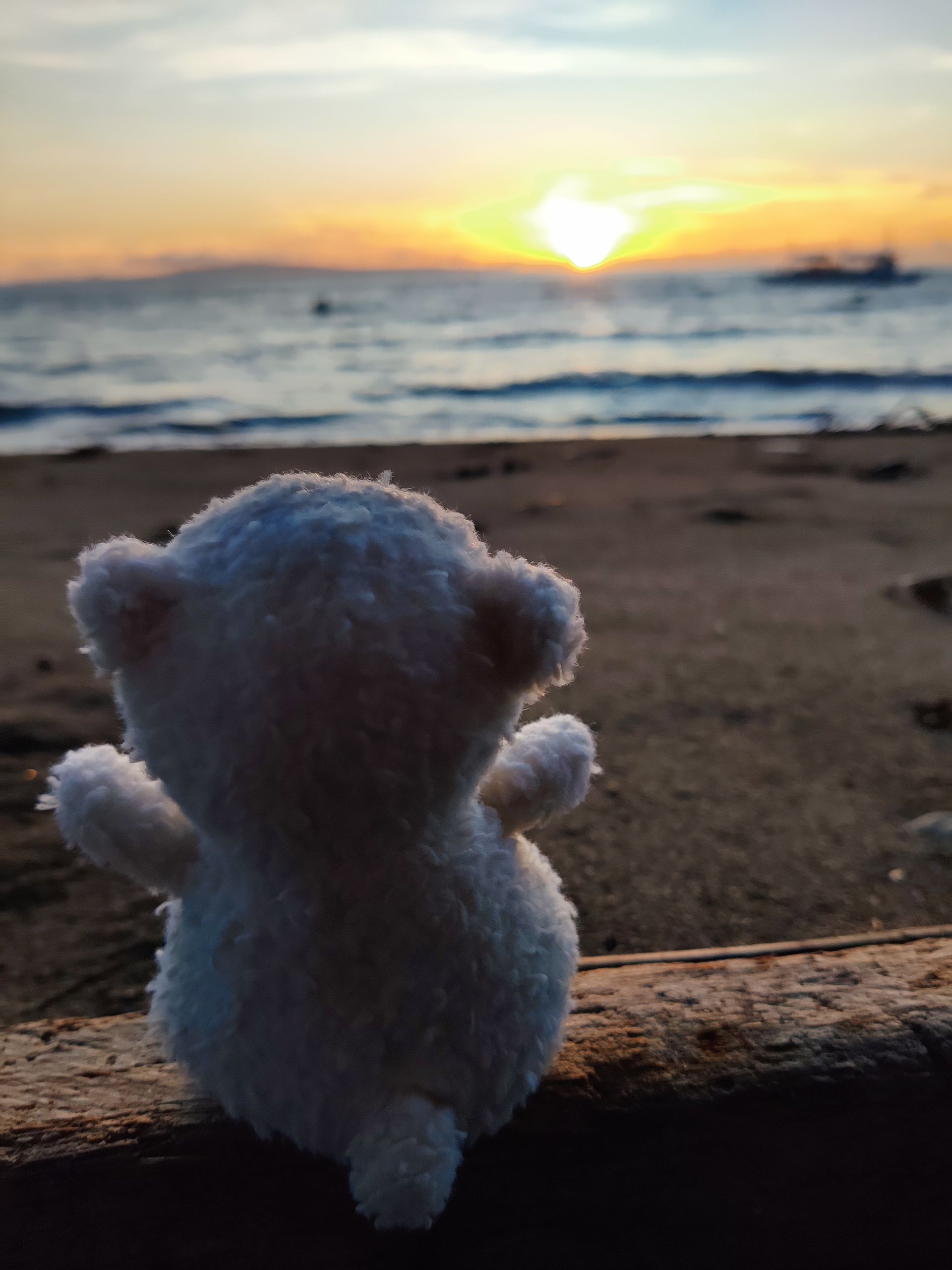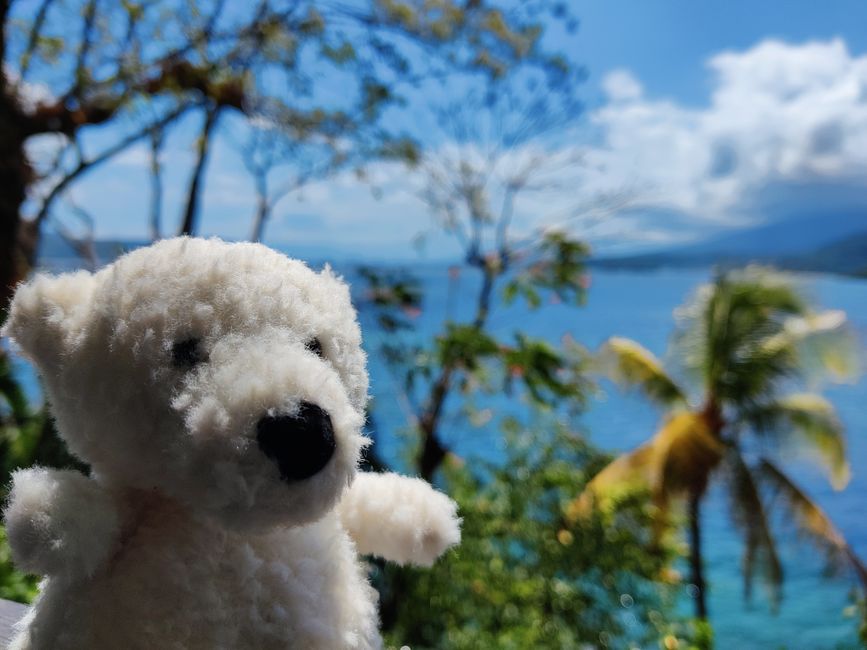Travis talks about gannets, penguins and turtles
Publicēts: 18.02.2024
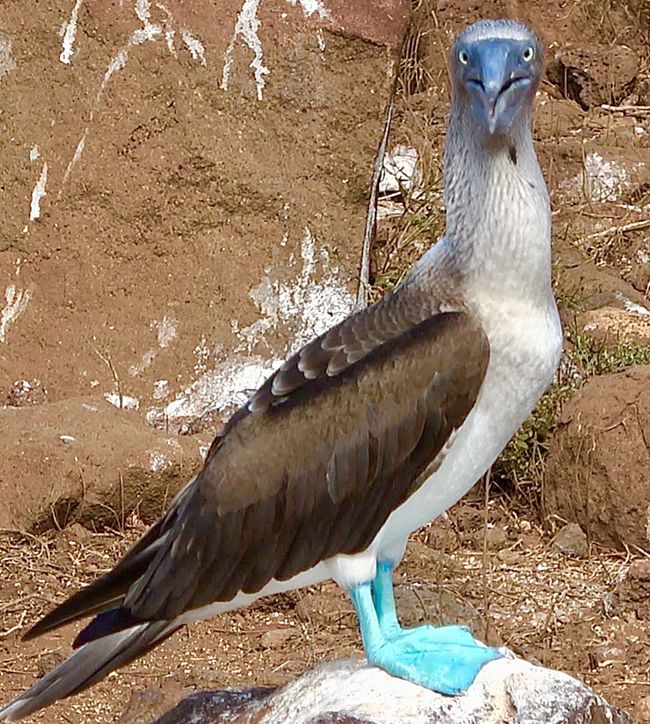
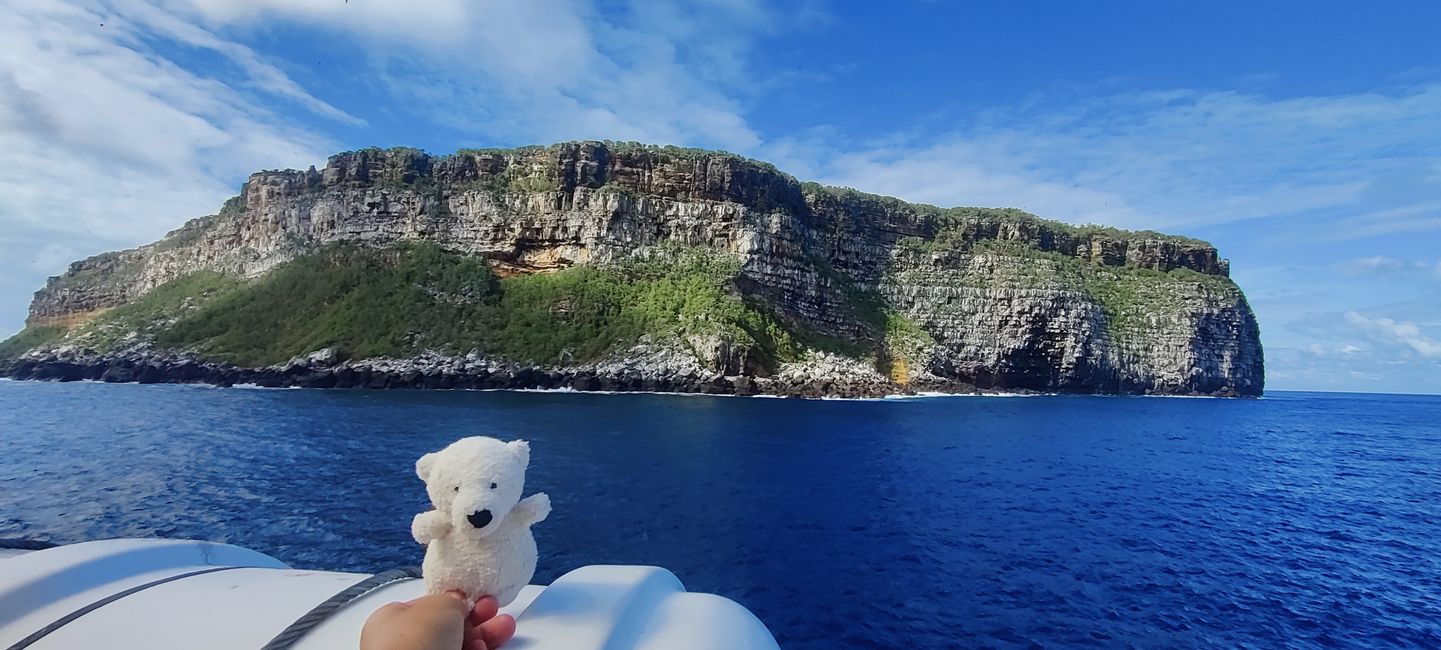
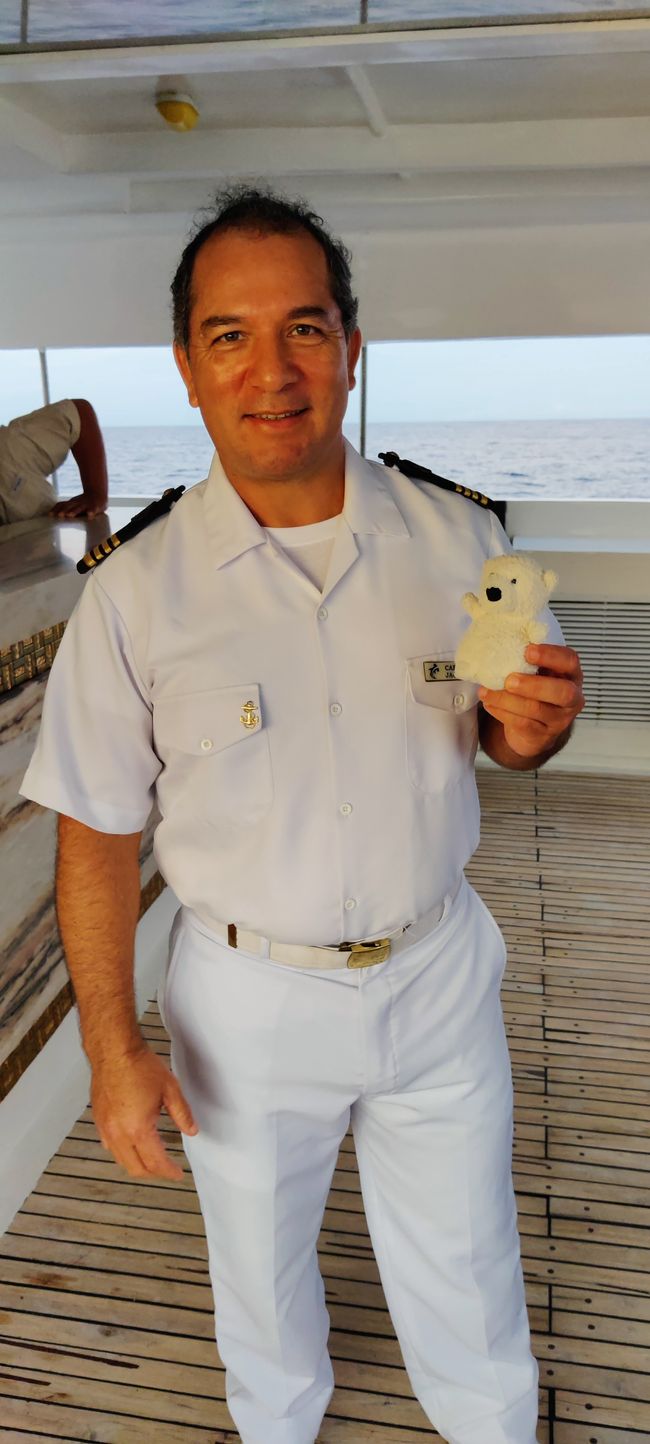
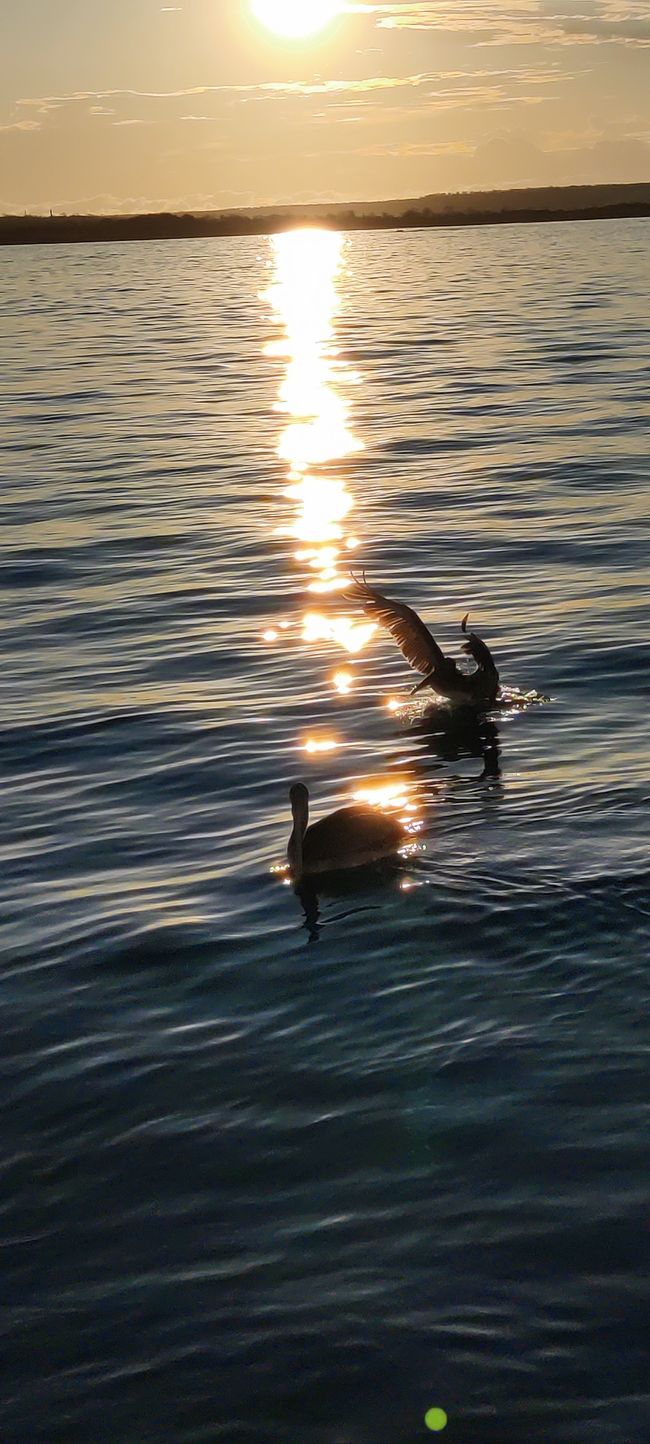
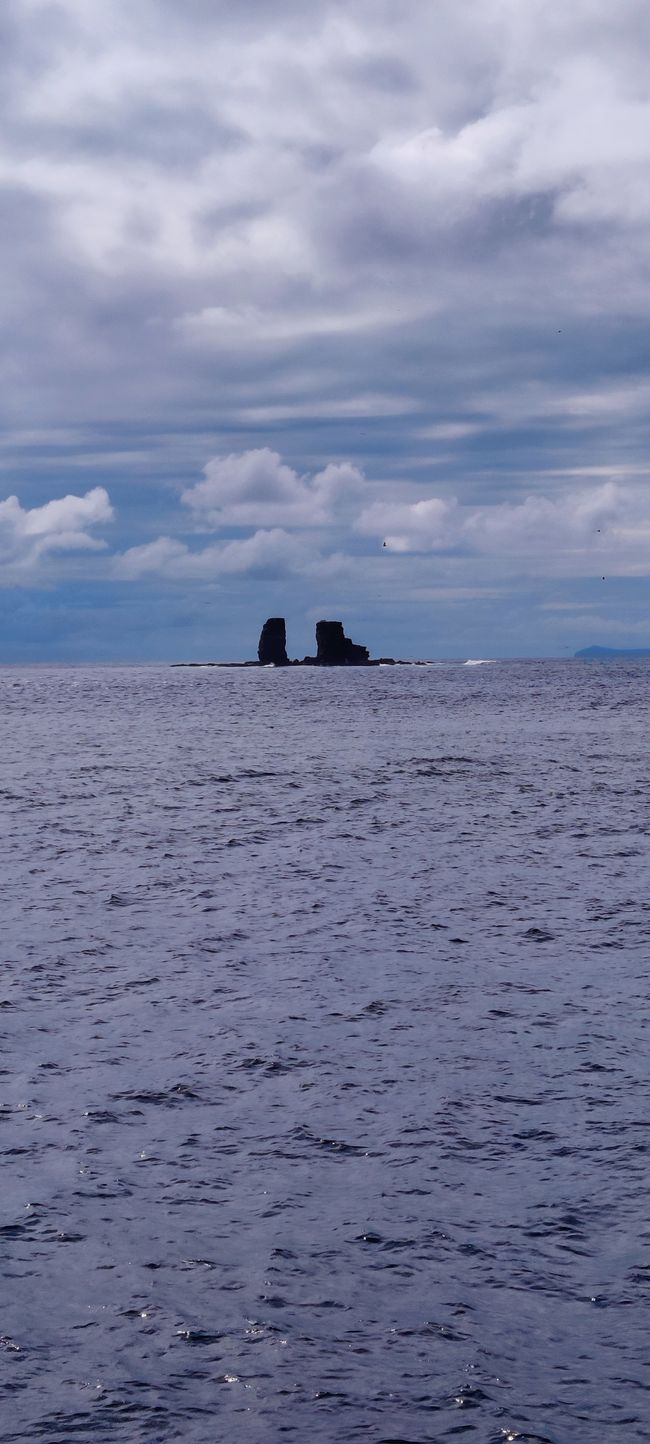
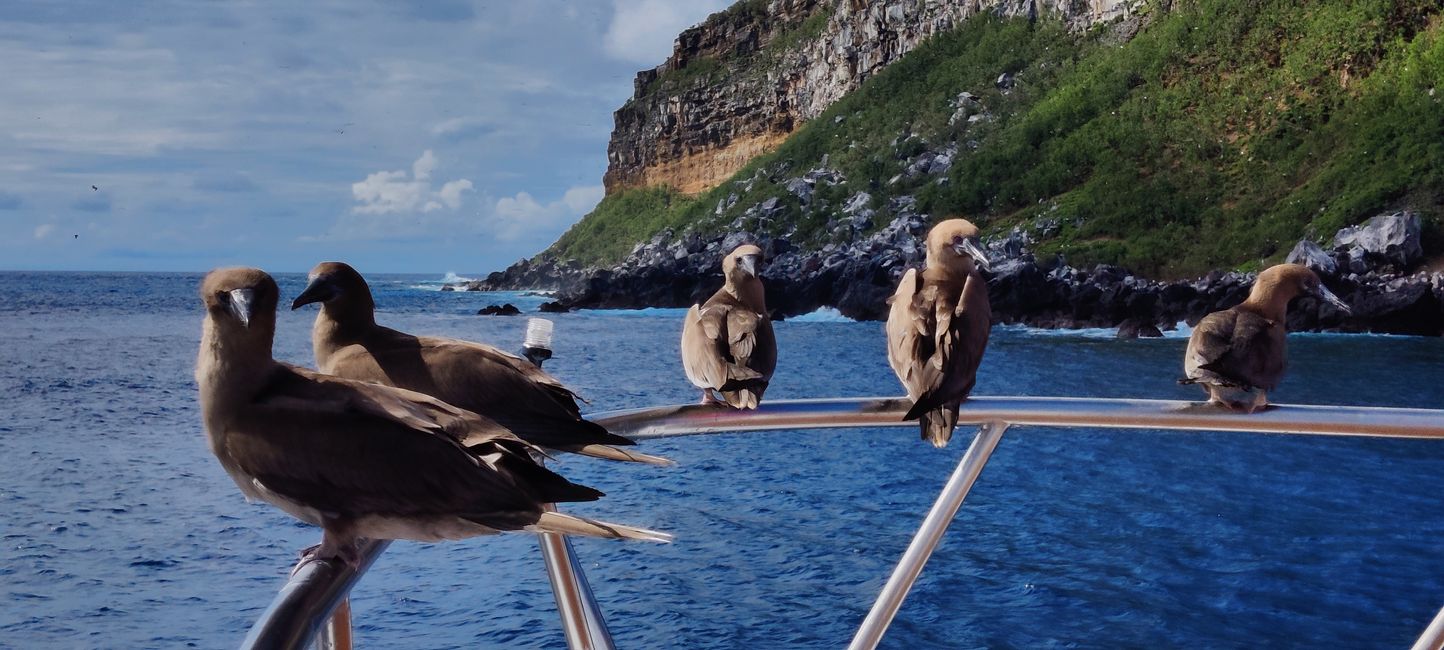
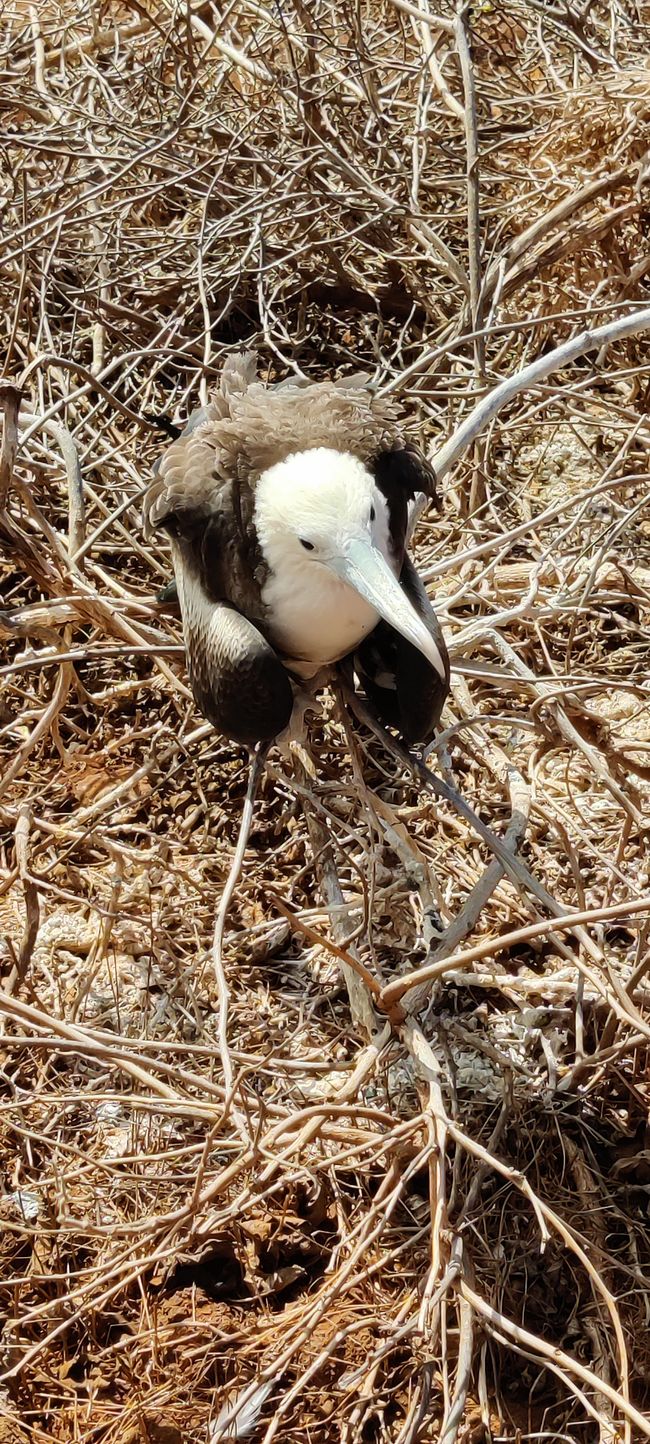
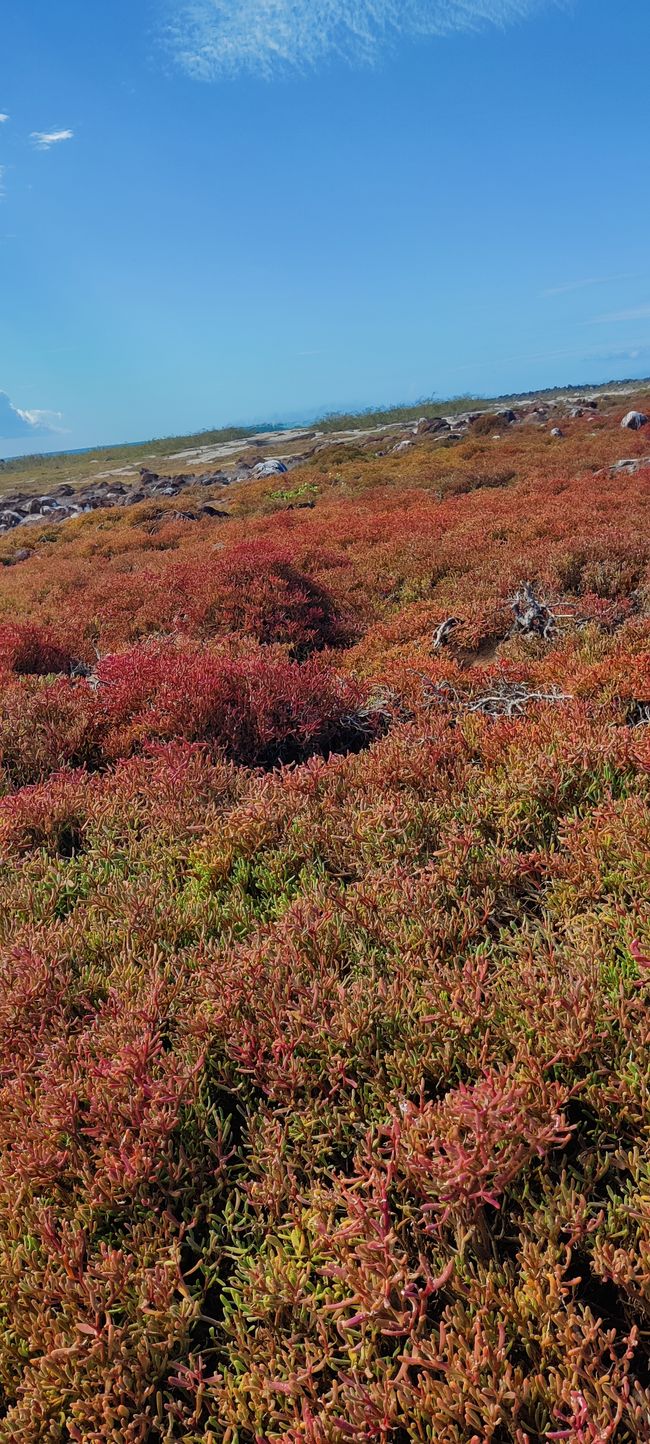
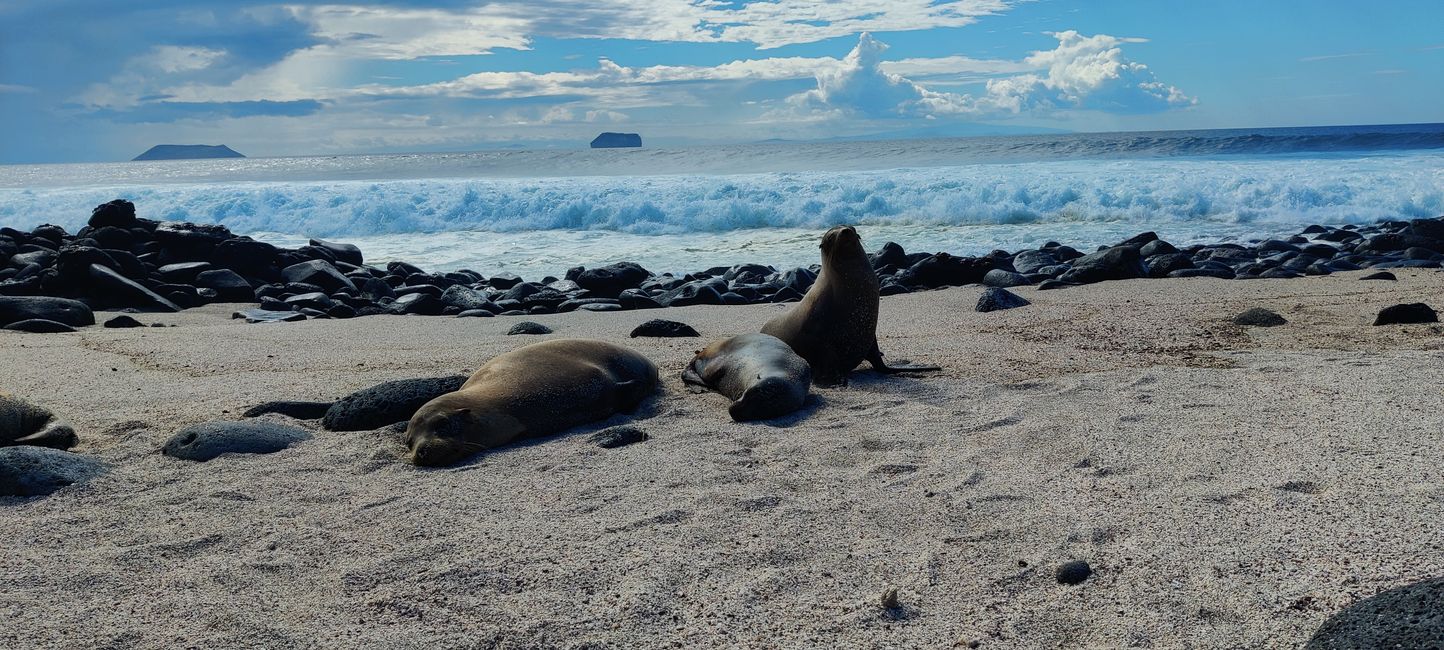
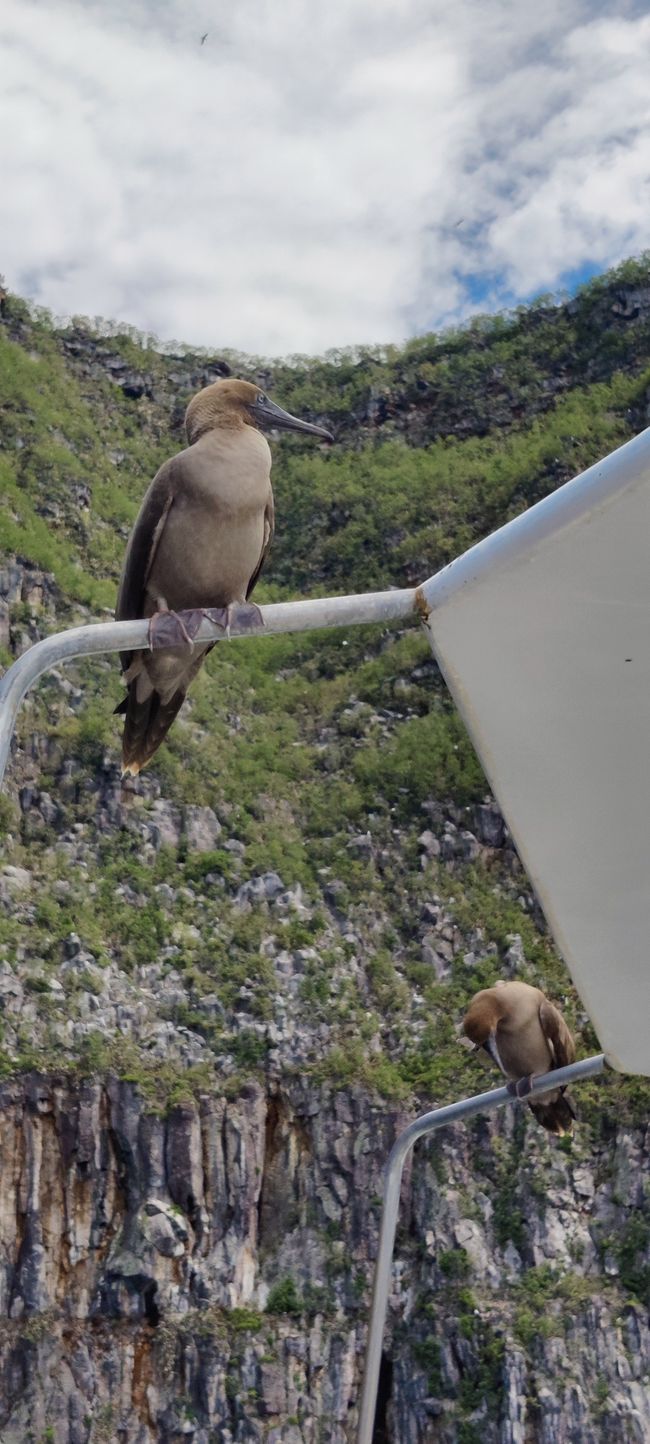
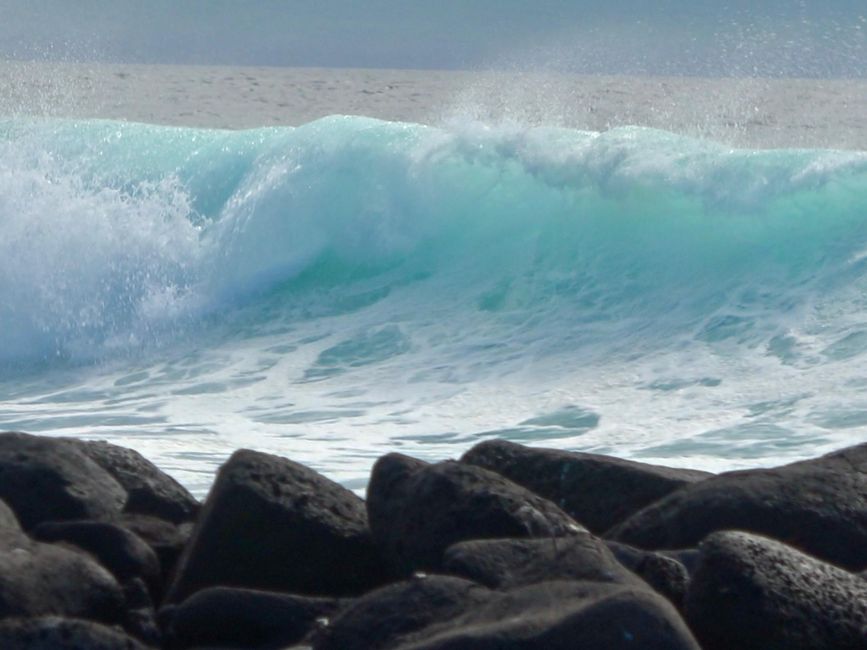
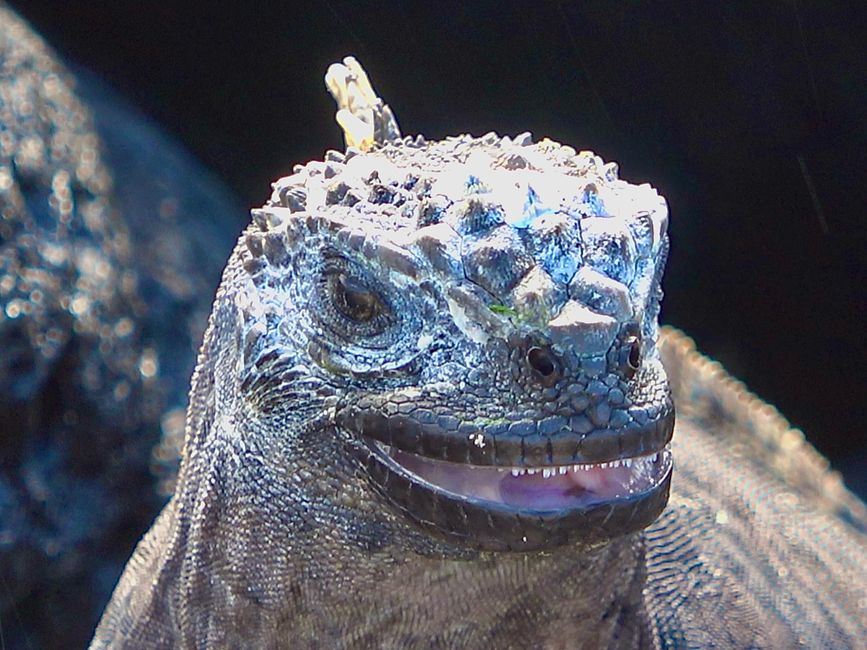
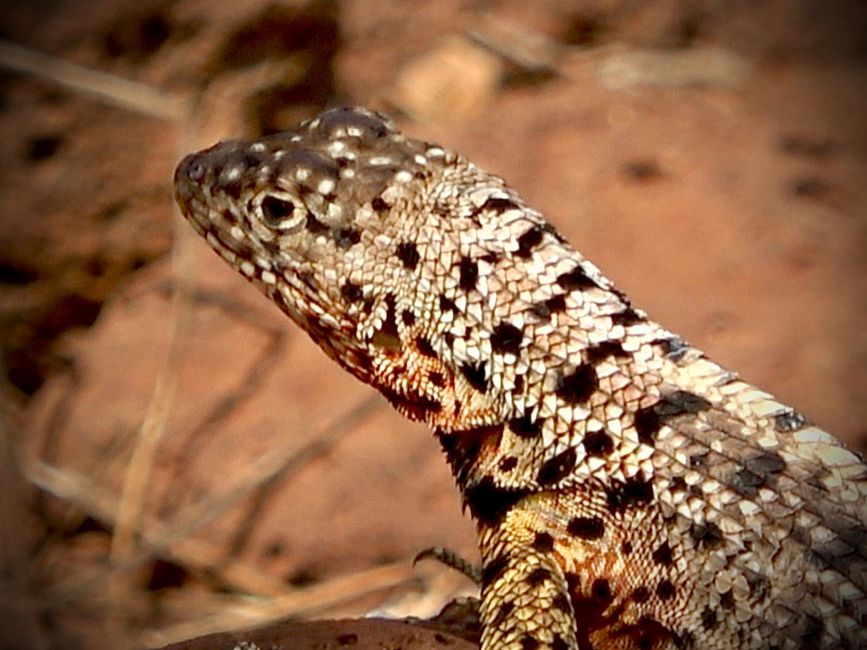
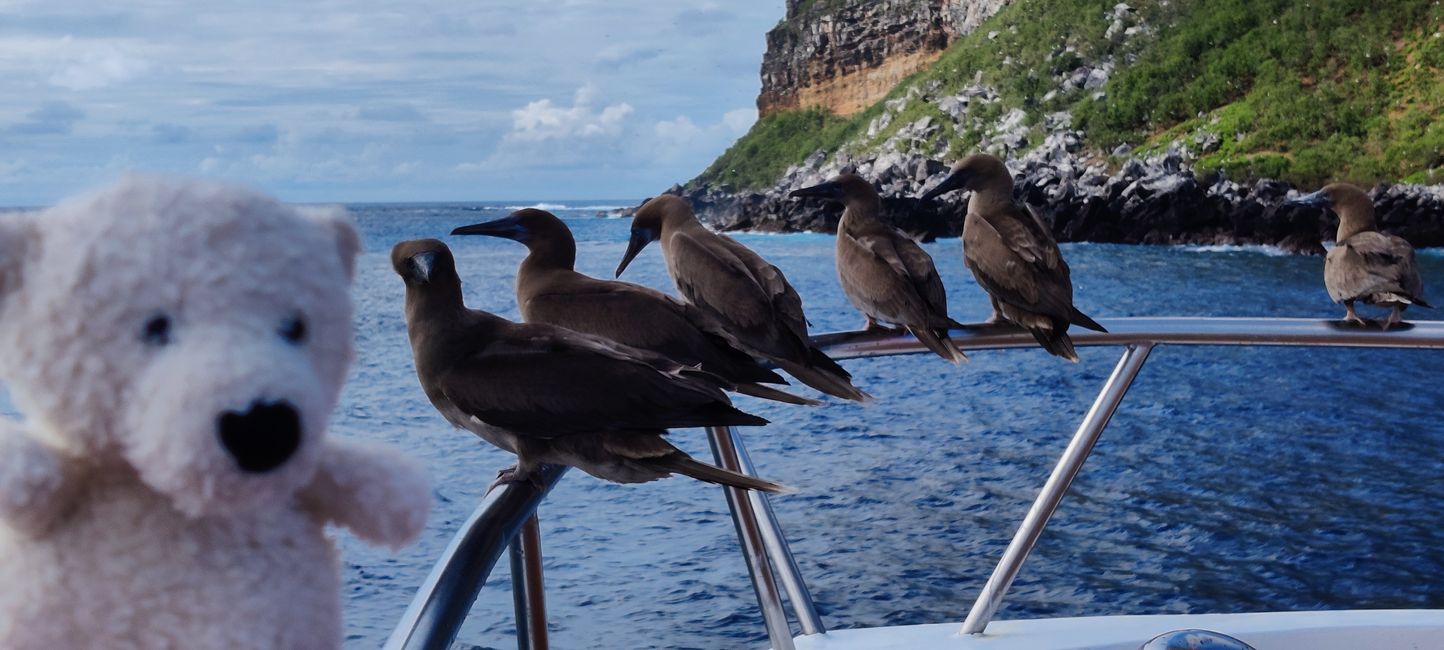
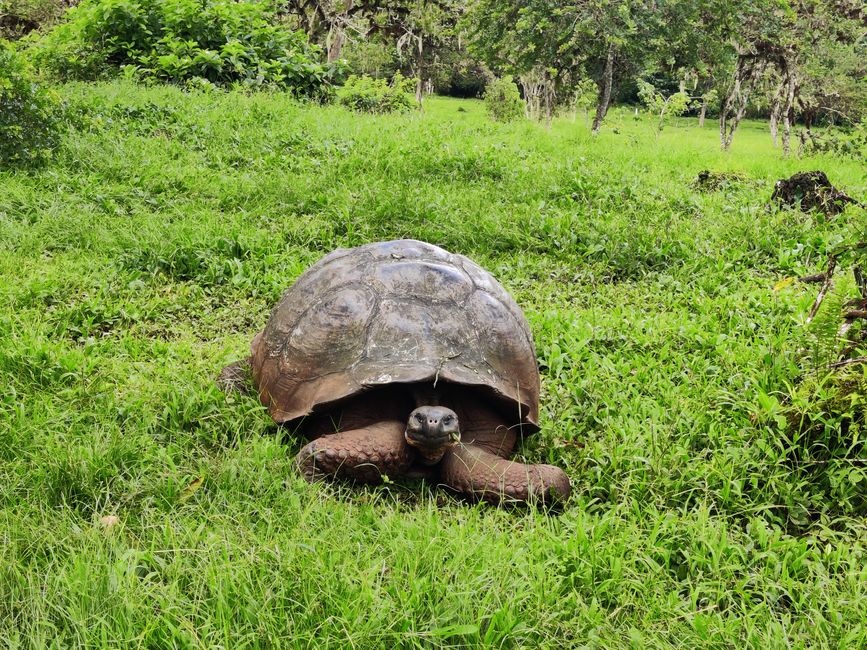
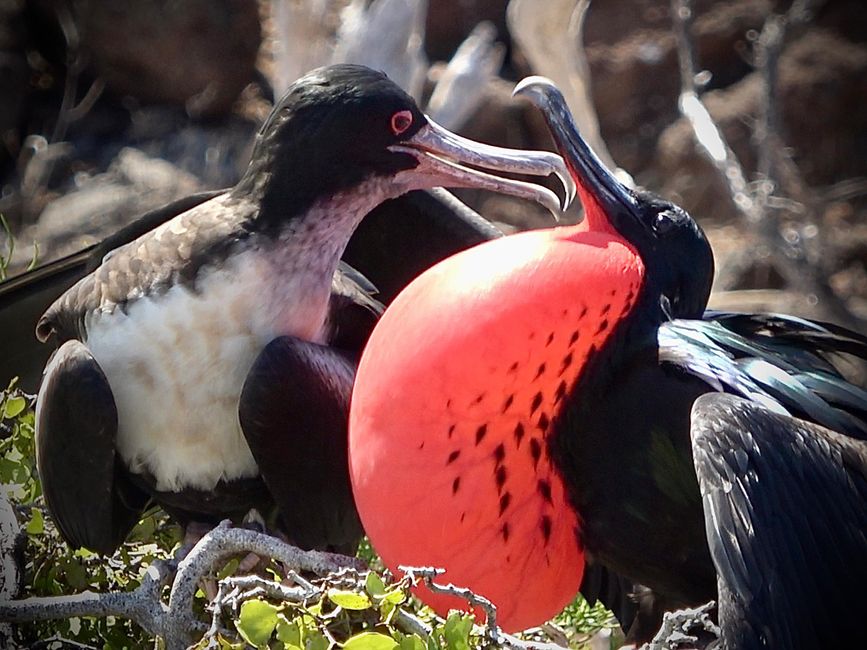
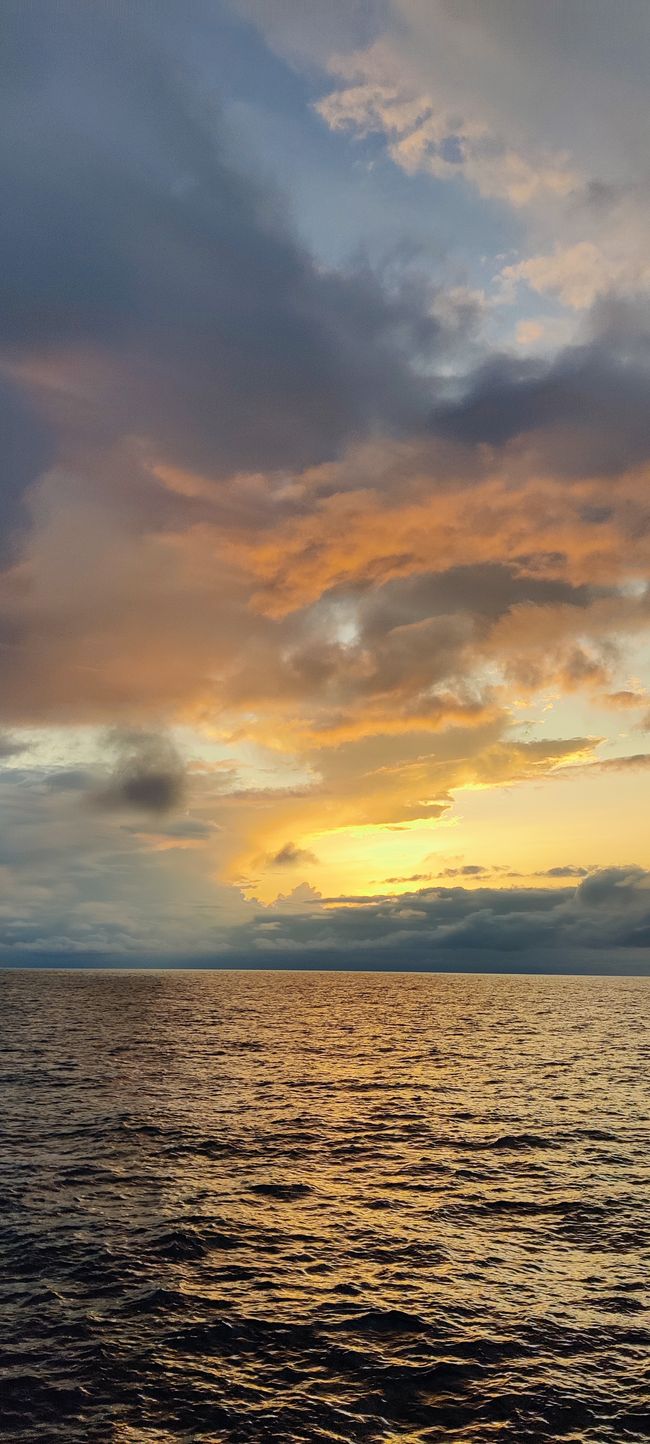
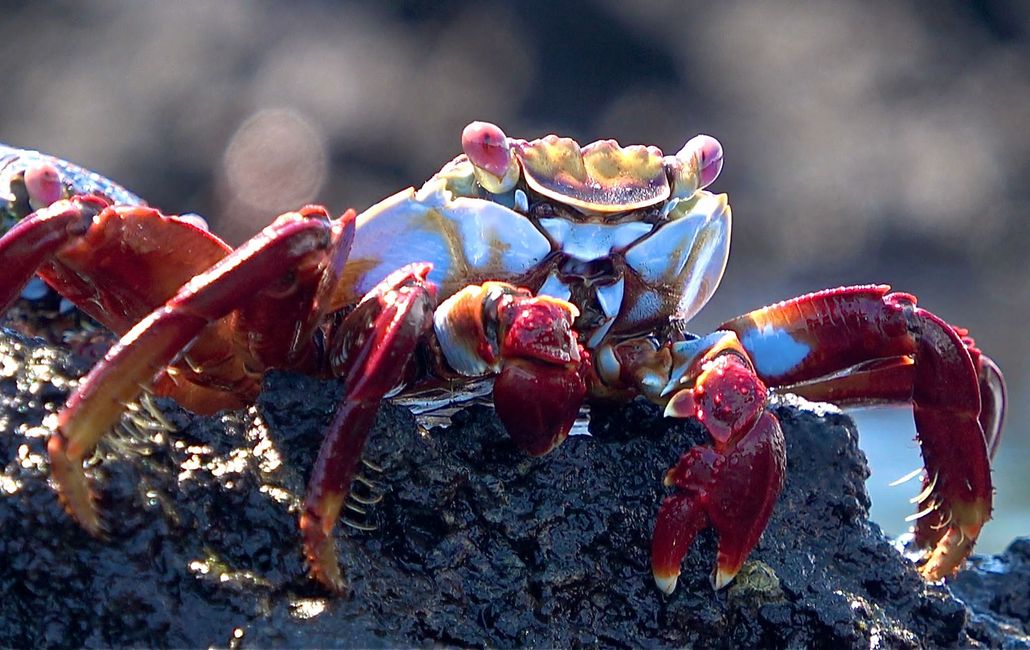
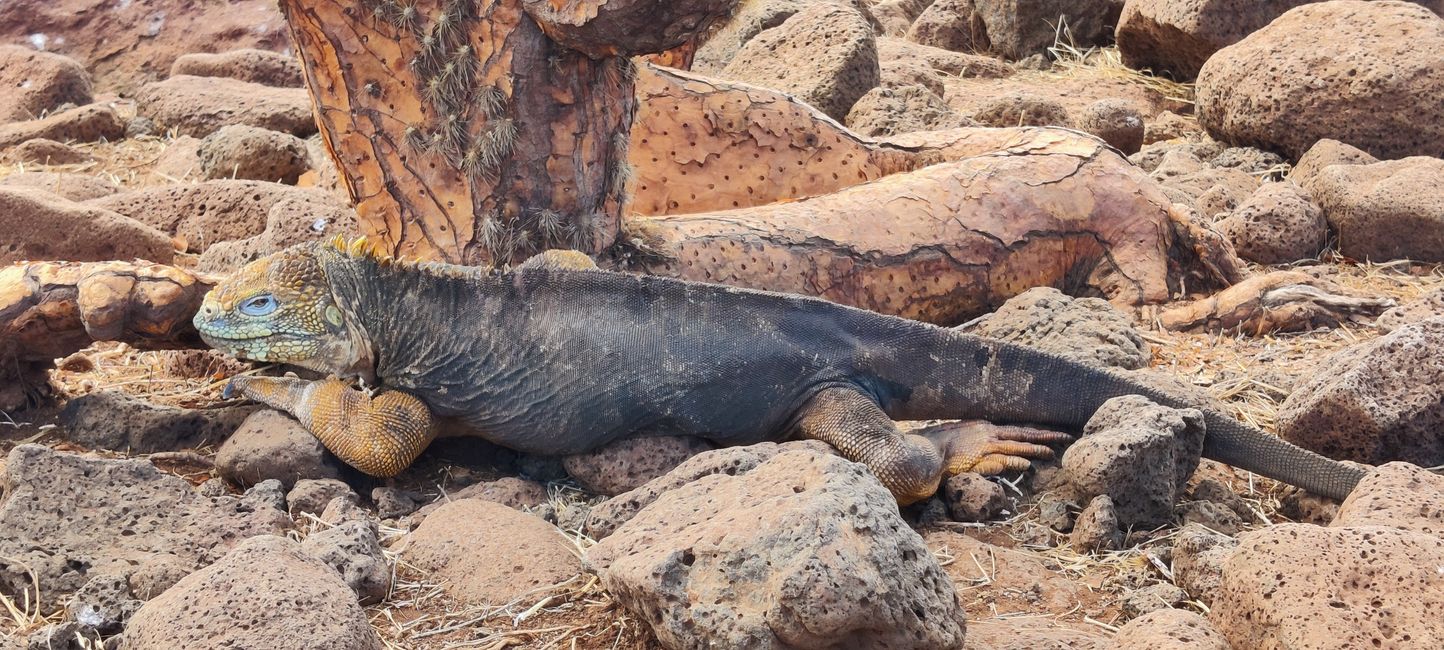
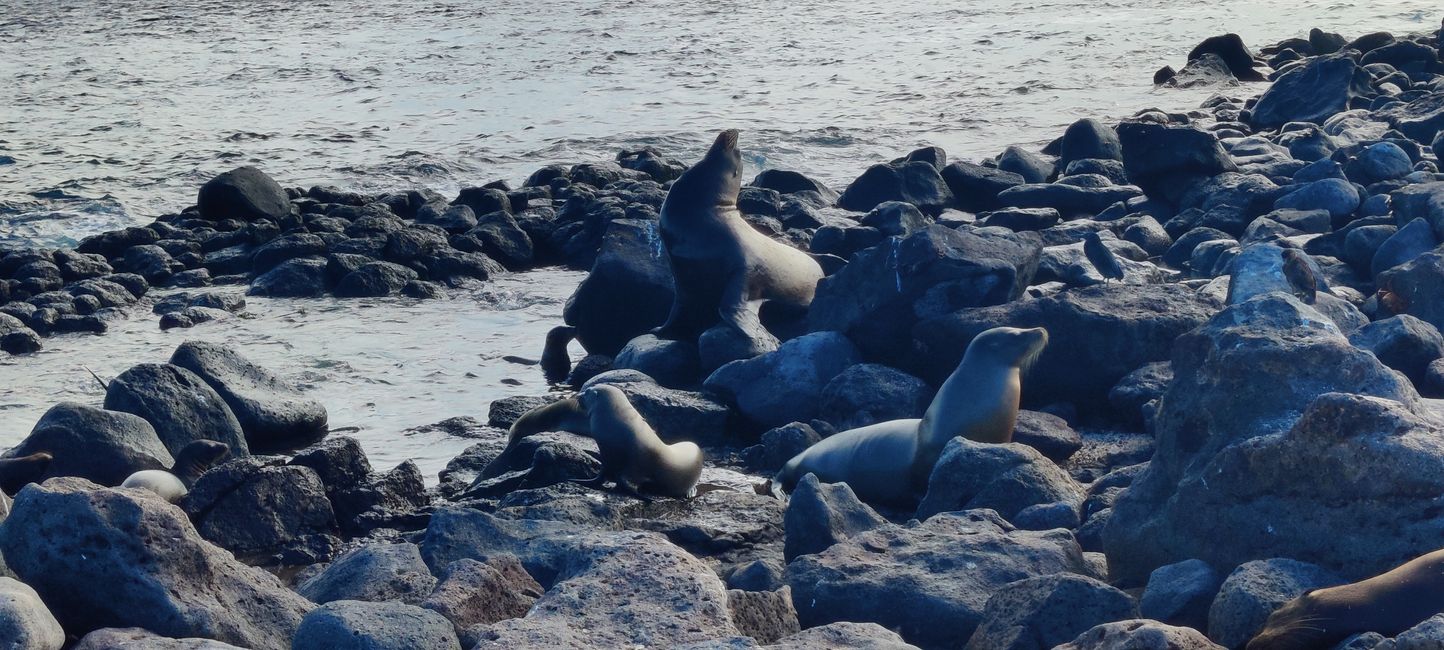
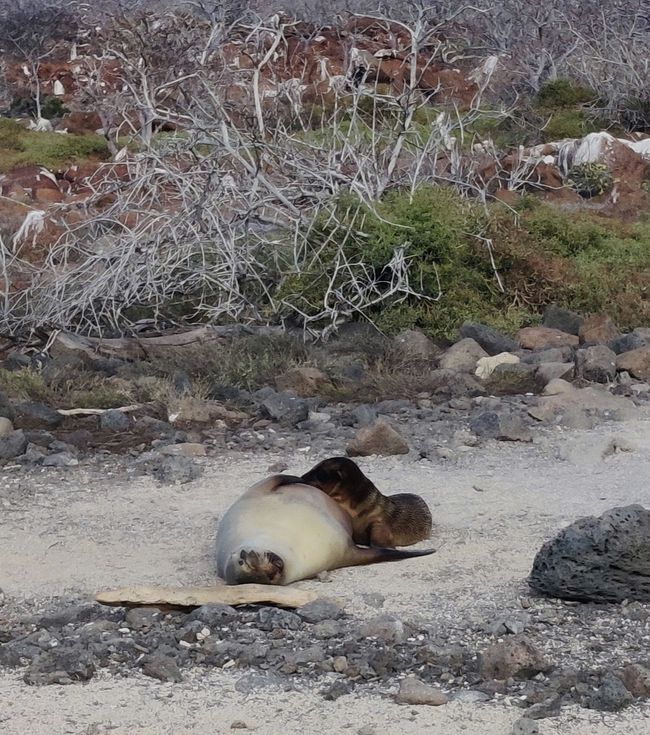
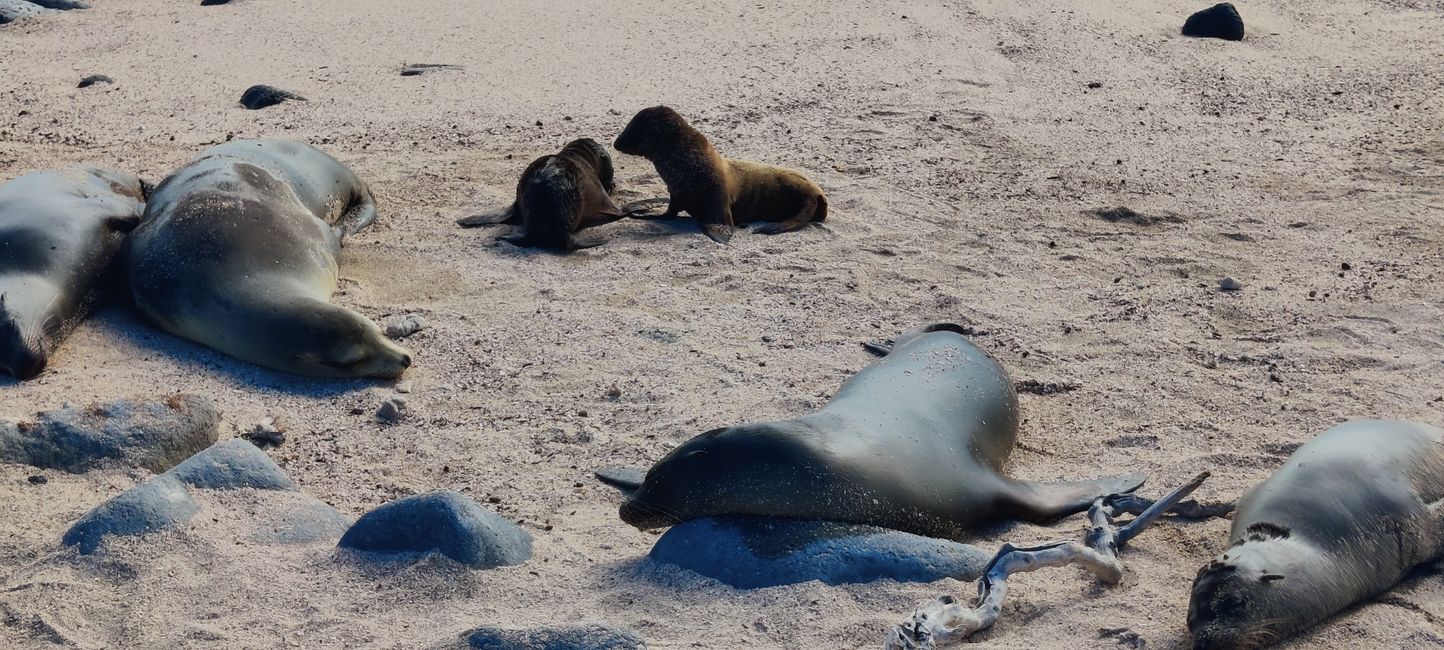
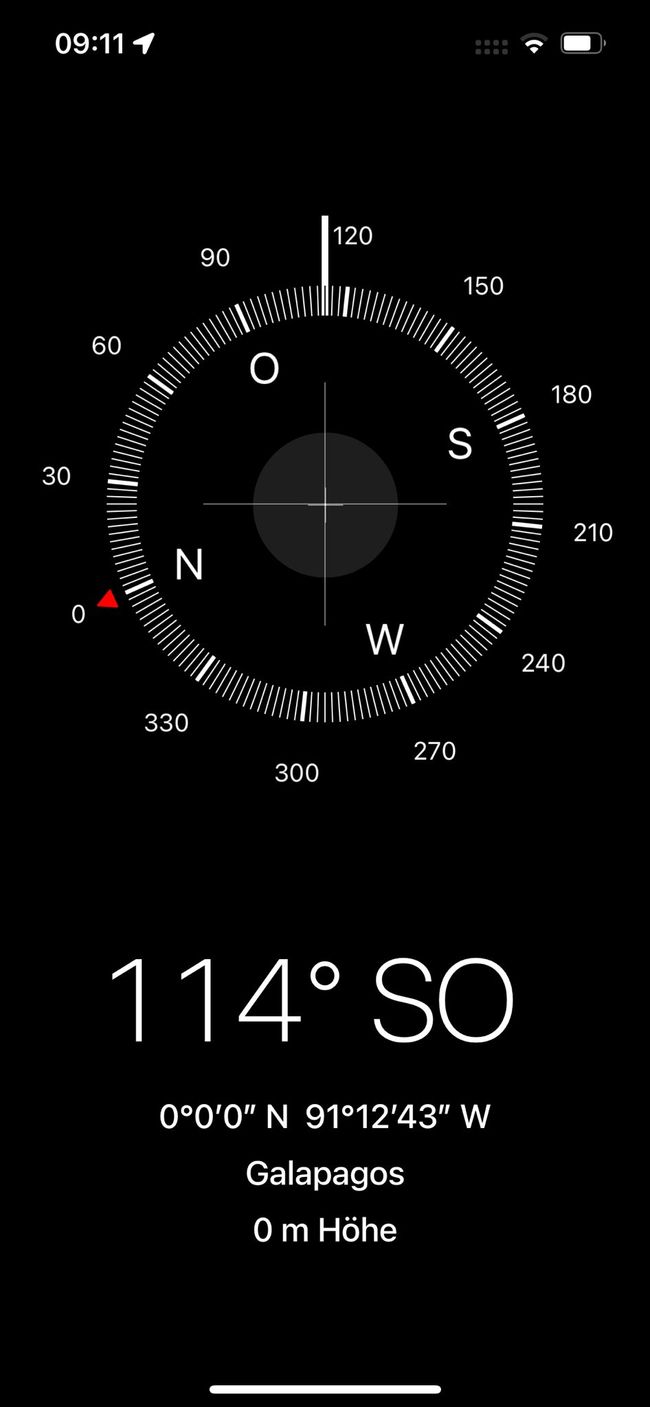
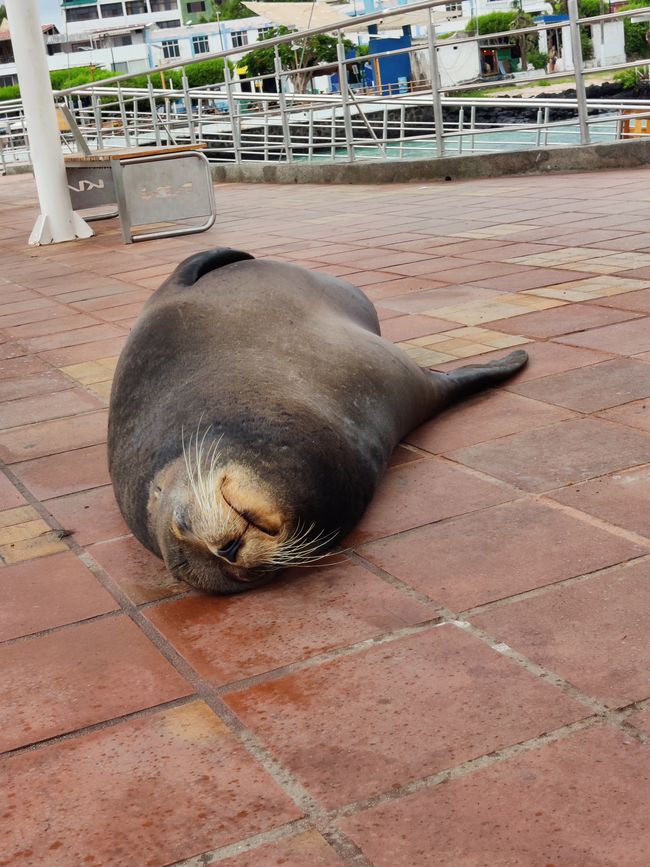
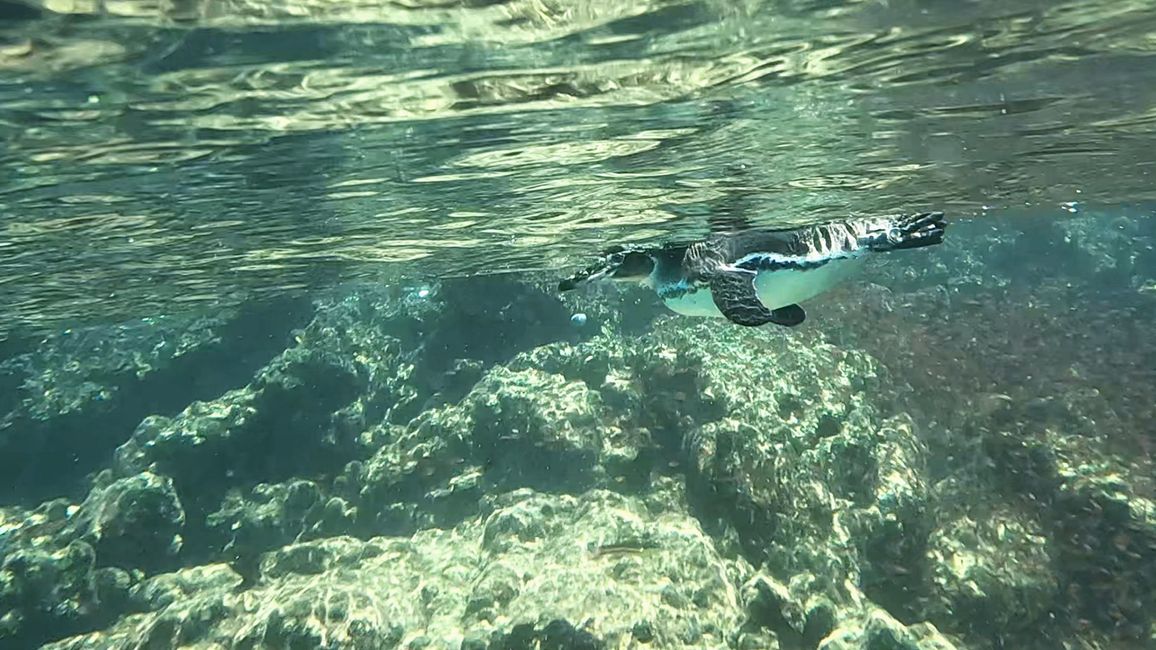
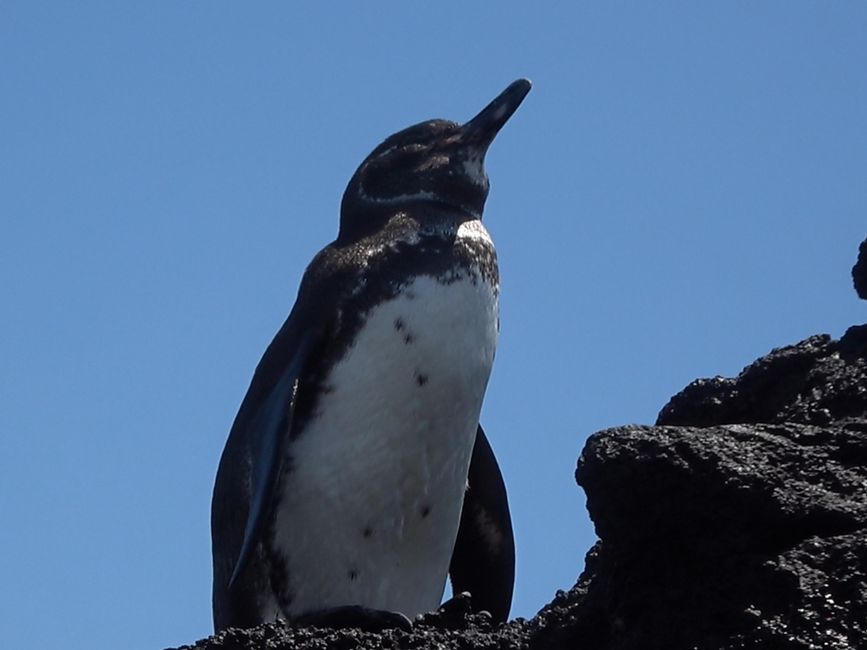
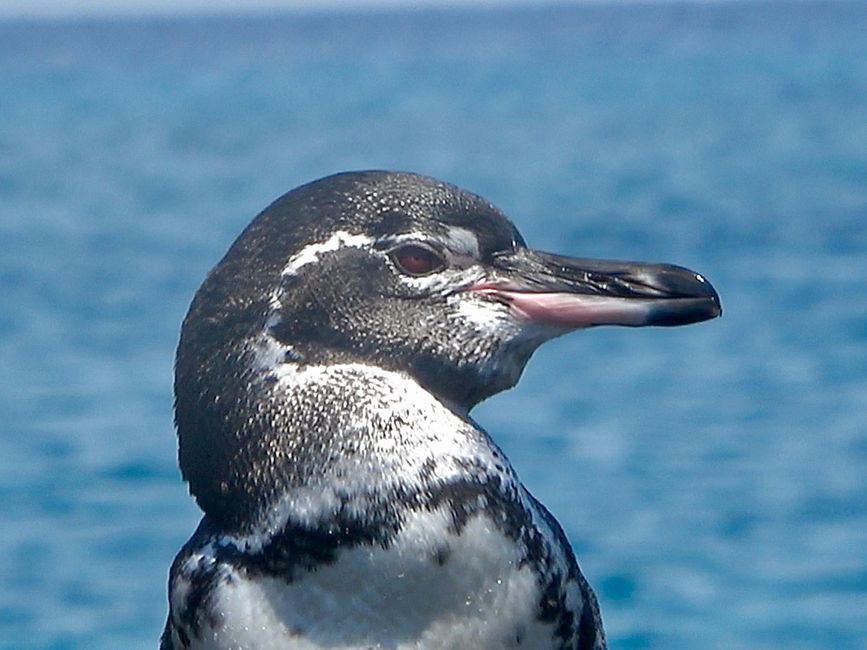
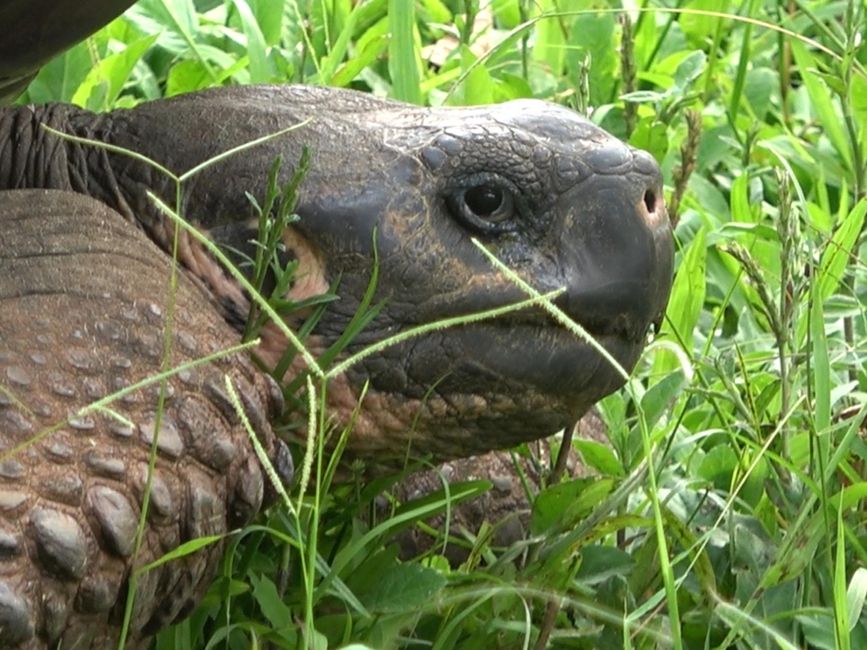
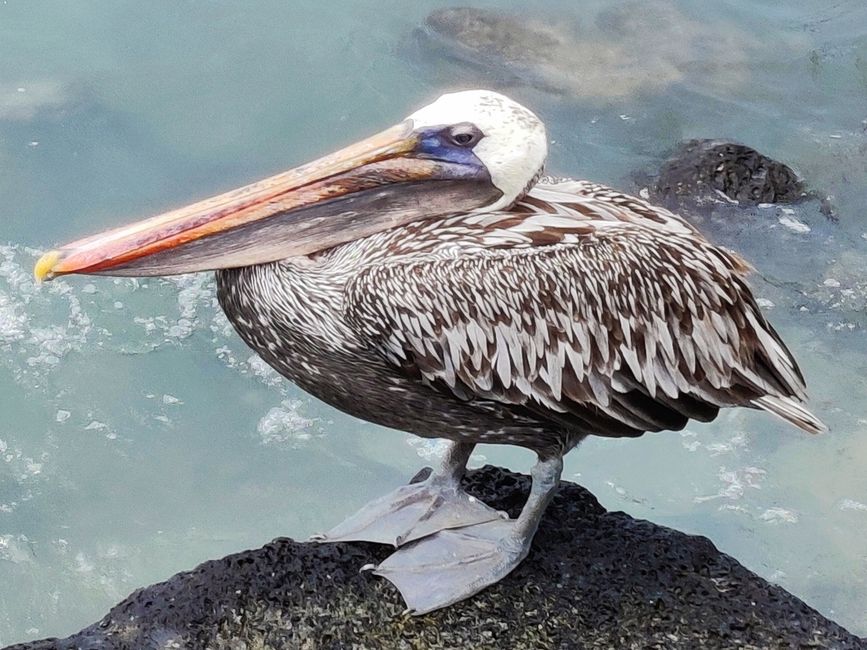
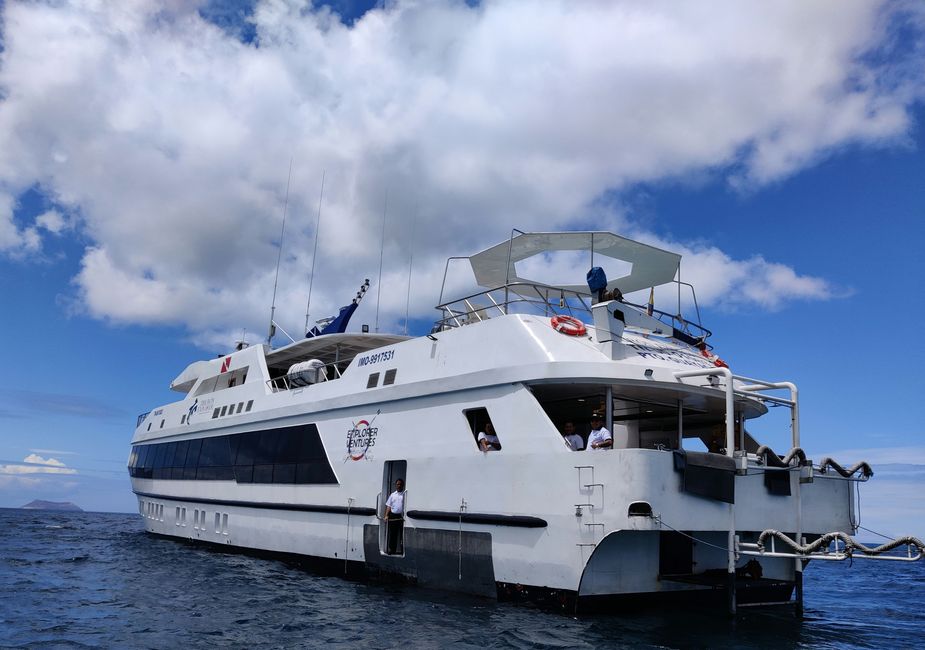
Abonējiet biļetenu
G'day.
Oh man, sorry, I haven't heard from you in a long time. That's because my oldest, who always helps me a little with my writing, was so busy on the diving boat.

I had the impression that the two of them were just alternating between sleeping, eating and diving. Well, I observed everything calmly and from a bit of a distance. But now we are back on land (in Puerto Ayora on Santa Cruz) and I can tell you something about the last week.
My older one covers the part under the water - you may have already seen it - I wasn't there.
https://vakantio.de/unser-trip-um-die-welt/ Tauchen-in-galapagos-teil-1
But we also saw something above the water. From the boat and also on two shore excursions.


Whenever we were near land, we had a lot of bird visits. Seagulls and boobies especially.



Our first shore excursion went to Seymour Norte, i.e. the island of North Seymour. There are a lot of land iguanas, blue-footed boobies (they're like a heraldic animal here), frigate birds and sea lions.

The males of these birds have a large red bag and use it to woo the females with a loud noise. I don't understand why my two older ones are laughing right now at what I'm saying. But whatever.
In any case, these flying artists can stay in the air for weeks. And they often prey on other birds in the air. That's why they are sometimes called man-o-war birds in English.

The yokels were kind of funny.

Scientists aren't yet entirely sure what causes the gannet's feet to turn blue after a certain age. Diet or genetic predisposition or both. In any case, if the bird gets less fish, they become paler. And women like really dark blue feet. Well, by the blue-footed boobies I mean.

The land iguanas looked a bit dangerous, I thought.

But luckily, according to the national park rules, you always keep your distance from the animals. Nothing can happen then.

And what we also saw there were lots of sea lions. A whole colony with animals of all sizes and ages.





But actually, to see sea lions you just have to be somewhere near the water. In Puerto Ayora, too, they lie and sleep on the very busy pier where people are constantly on the move.

By the way, just like the pelicans.


Seymour Norte had received little rain for the season. You could see that in the plants. In Galápagos you always have so-called natural guides with you who will explain everything to you. This is actually quite practical.
Afterwards we drove around by boat for several days. Especially in the north of the Galápagos Islands, to Wolf and Darwin. You can probably see some particularly cool animals under the water. They said hammerhead sharks. Do nail sharks exist too?
But it was nice over water too.


On the way back we crossed the equator for the second time. It runs along the northern tip of Isabela. Of course you can't see it, but there is somehow a technical possibility that you can see on a display which longitude or latitude you are currently at. That’s called coordinates, my oldest said. And we were at zero zero zero. Are you looking at!

The captain of the ship was really nice and even let us see when we were crossing the equator in his captain's helm cabin. A special experience.

The second shore excursion at the end of the tour was to the highlands of Santa Cruz. To a large farmland where lots of giant tortoises live. Maybe they were great, I tell you. Some, especially the older male ones, really earned their name.

There are different subspecies of them on the different islands. Unfortunately, some are already extinct. Sailors used to take them with them as a living supply of meat. And they really can't run away quickly.

And what was also cool, by the way, was that you could see Galapagos penguins along the way during the boat trip! Above water and for my two older ones while snorkeling too!




There were these brightly colored crabs sitting on the lava rocks by the water everywhere. I had already seen them elsewhere.

So, now you're somewhat up to date again. Man, I'm telling you, there are always such great things to see here - especially animals.
We probably also want to go to the Darwin Research Center tomorrow. I'm excited to see what else we'll see and learn.
I'll keep you up to date as much as possible. Until then, all the best and best wishes from Travis the Buddy Bear
Abonējiet biļetenu
Atbilde (2)
Mensch Travis, da freue ich mich aber sehr, dass ich endlich wieder was von dir lesen und deine tollen Fotos anschauen darf 💕
Ich bin echt begeistert, wie viele Tiere du beobachten konntest... wooooaaahhhhh,
Besonders die Pinguine.....Da wäre ich echt gern dabei gewesen 🥰🥰🥰
Und dieser Vogel mit dem roten Sack... 🤣🤣 der müsste ja eigentlich Weihnachtsmann heißen 🤔🤔
Und sag deinem Großen, dass ich seinen Tauchbericht auch ganz toll finde, besonders die Stelle mit den Delfinen 💕💕💕
Ich freue mich schon auf die nächsten Abenteuer. Bleibt alle gesund und genießt die Zeit
Gaaaanz liebe Grüße
Marlies
Karin
Dankeschön!! Jetzt sind wir ja schon ganz bald wieder zurück in Deutschland. Mal sehen, ob meine Großen mich dann auch weiterhin mitnehmen, wenn sie wo unterwegs sind.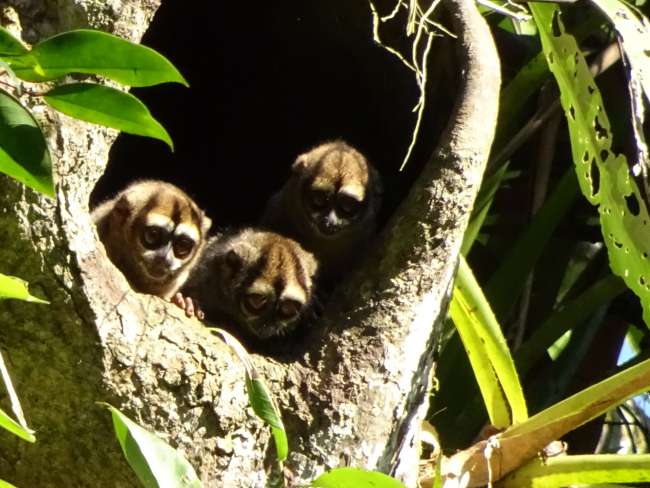
Ceļojumu pārskati Ekvadora
